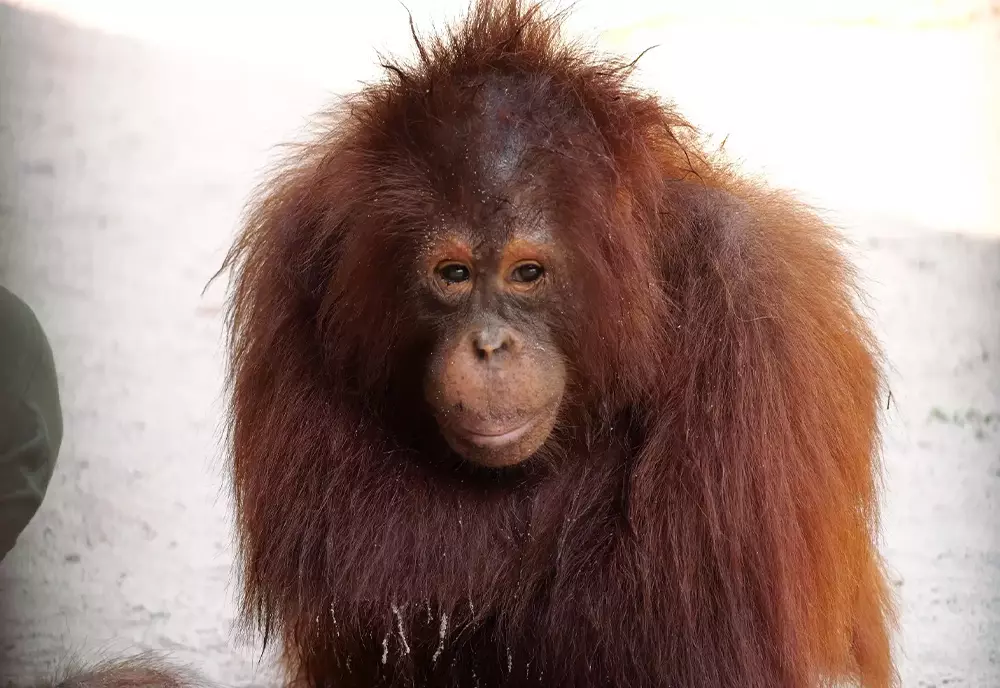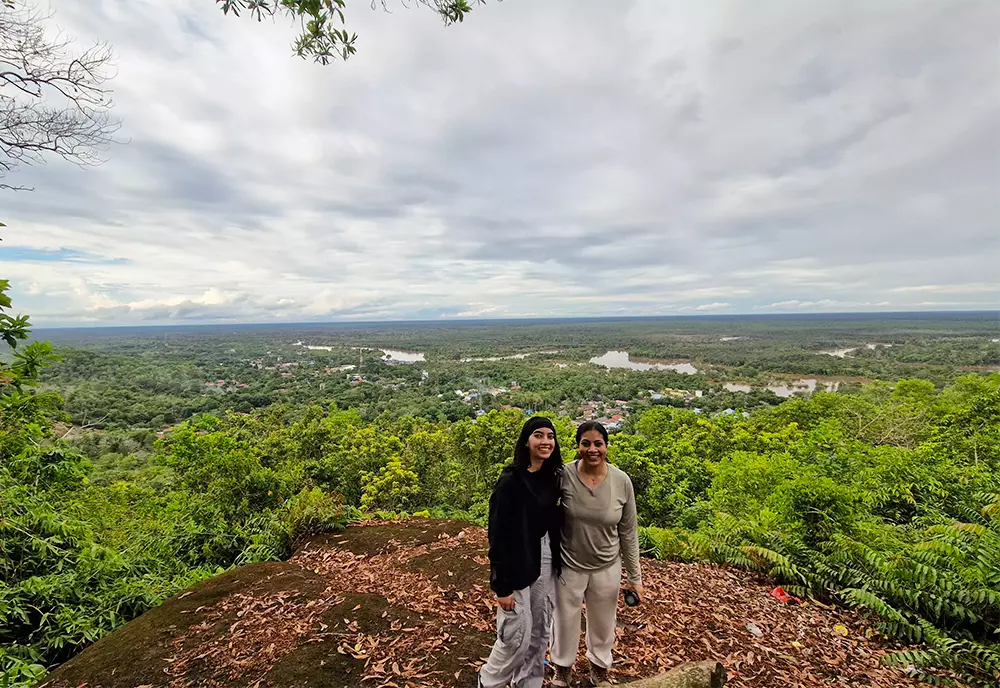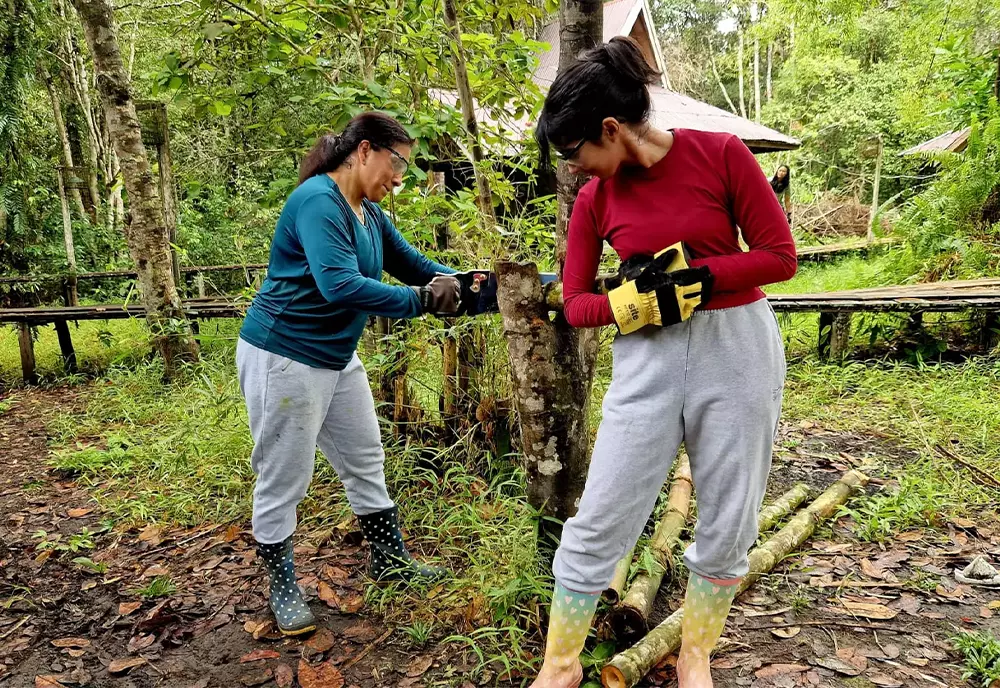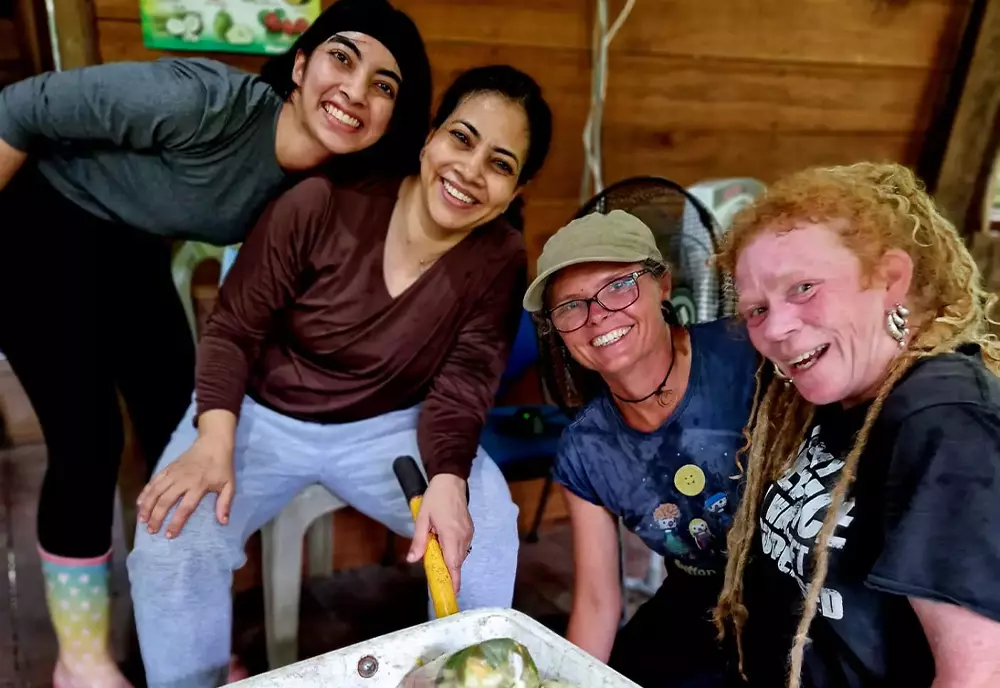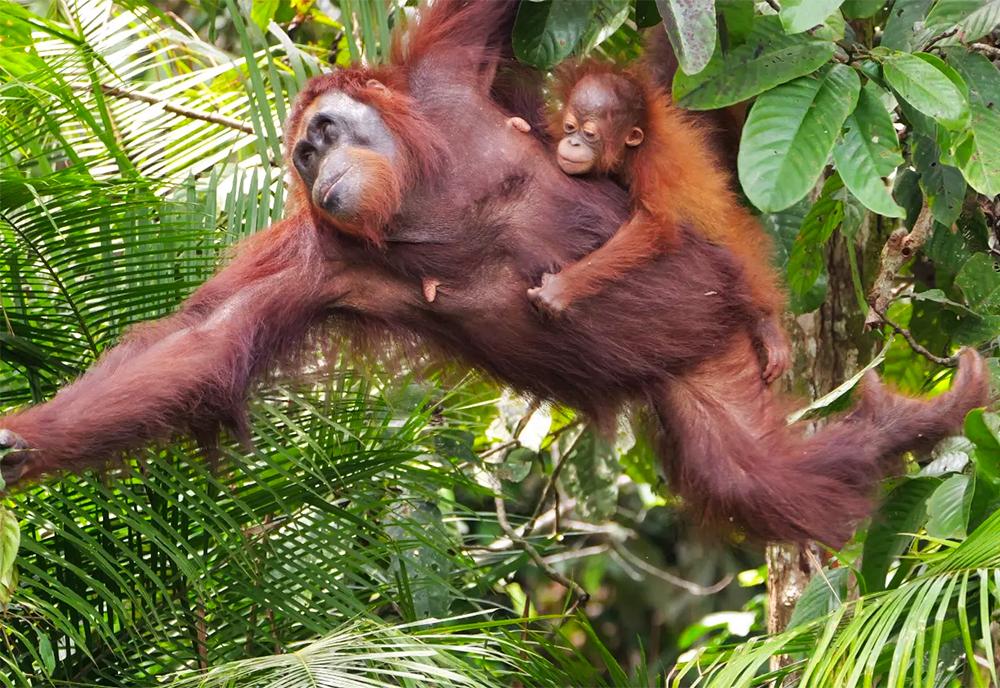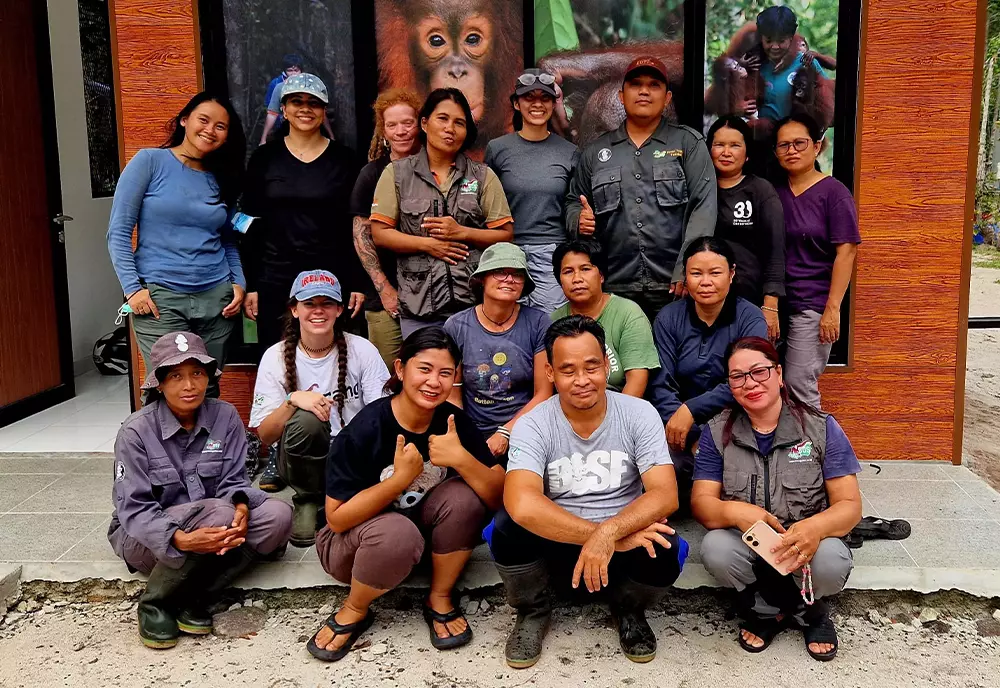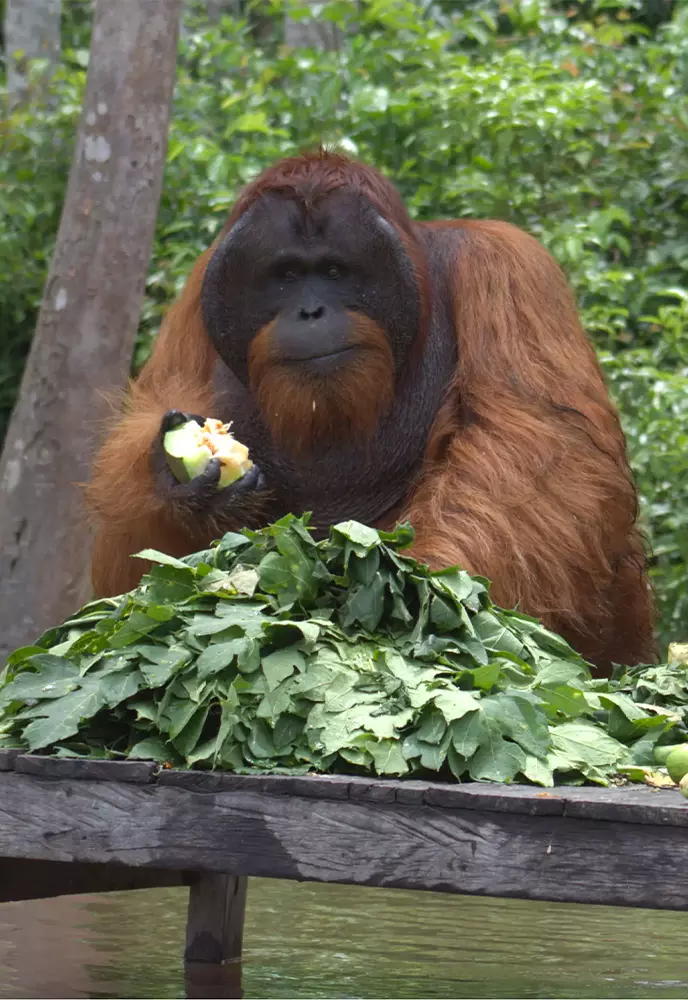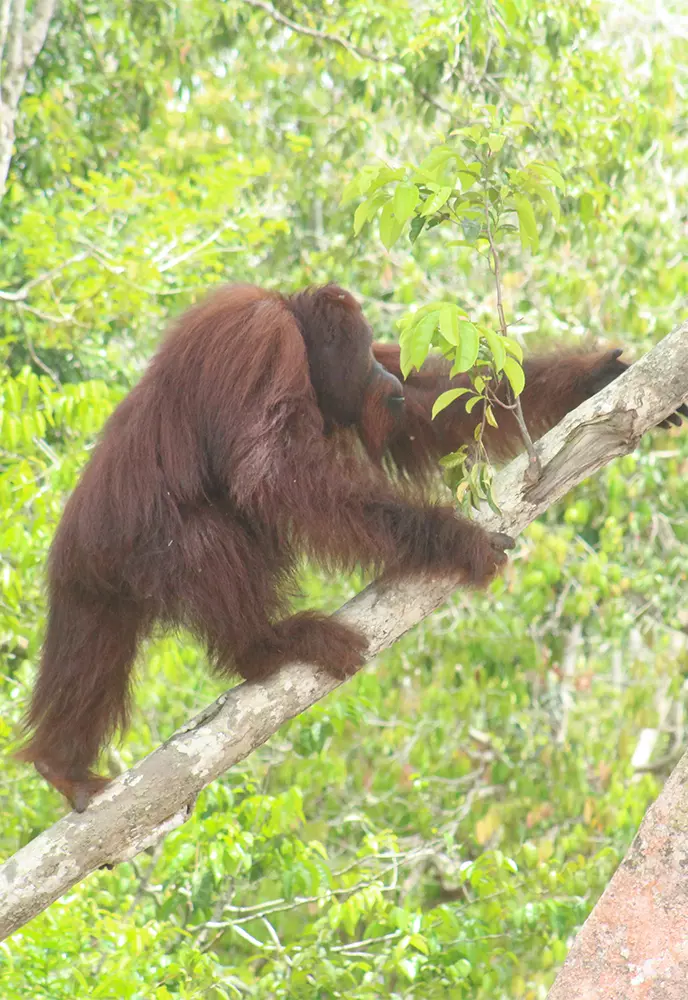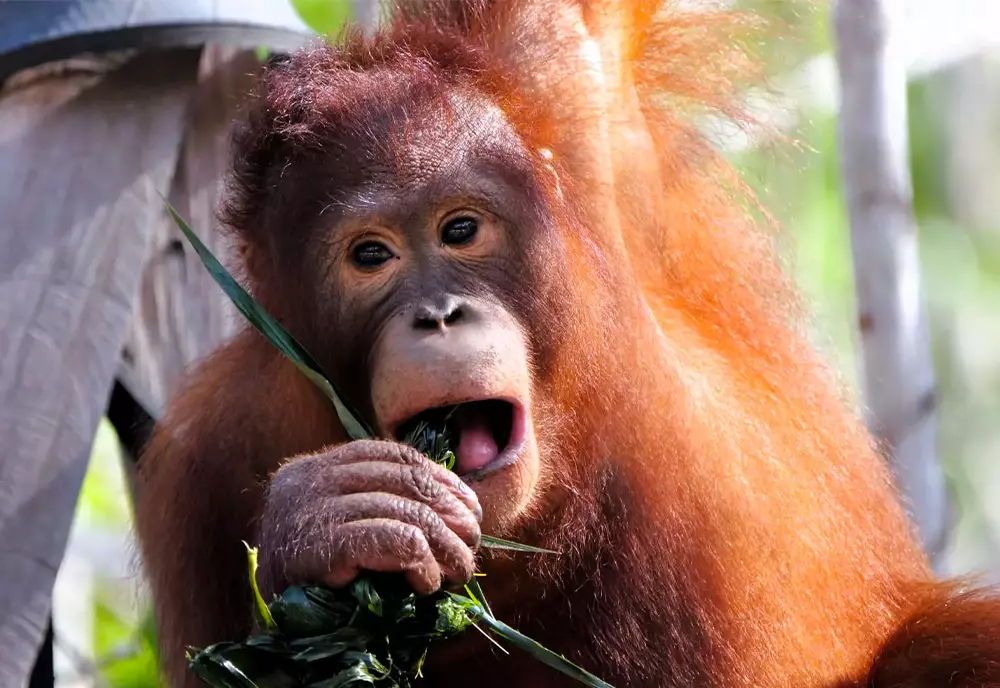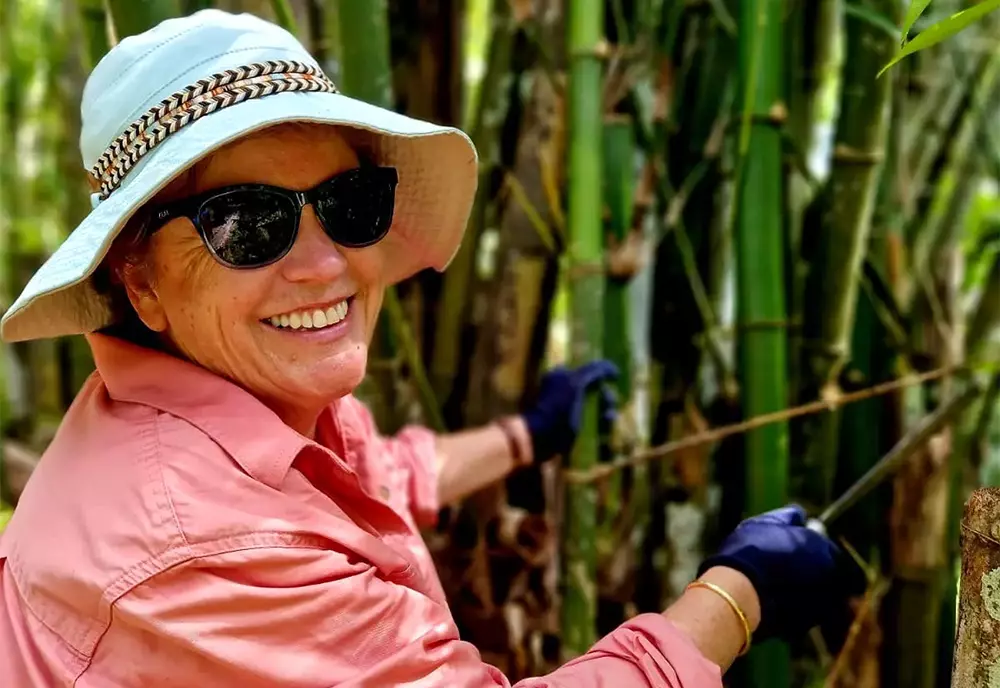

Nyaru Menteng Orangutan Sanctuary
Help to rehabilitate the largest number of rescued orangutans in the world by volunteering at this orangutan sanctuary – made famous by the TV show Orangutan Jungle School!
Speak To A Travel Expert
Activities
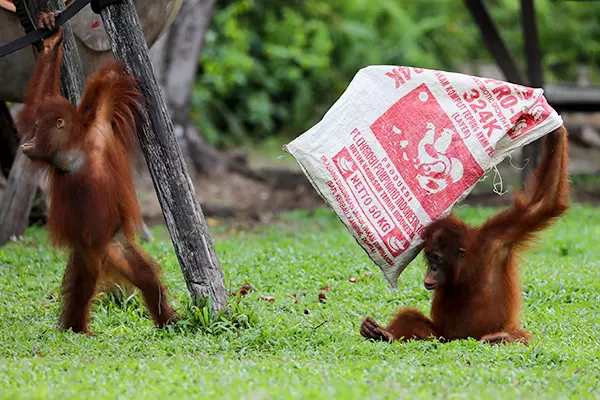
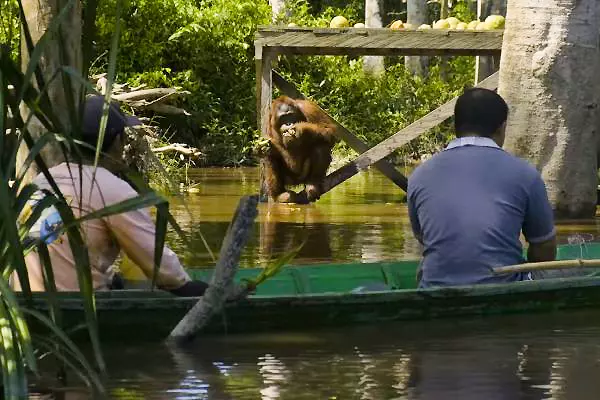
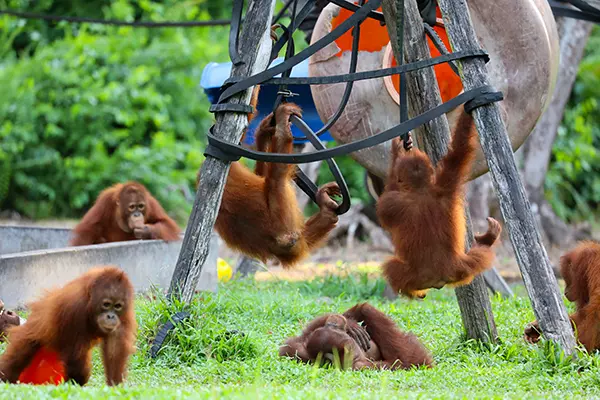
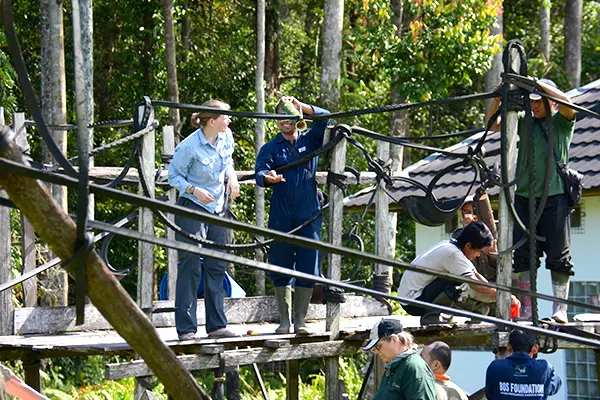
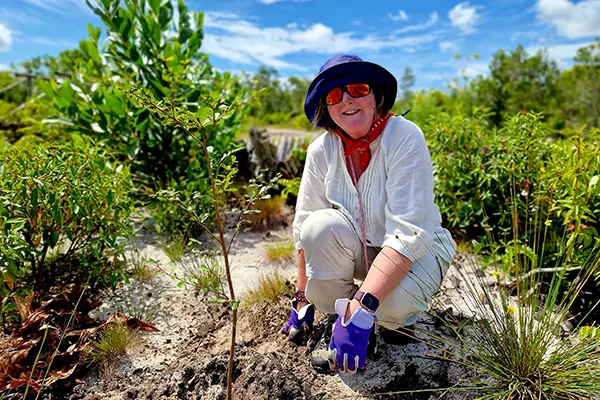
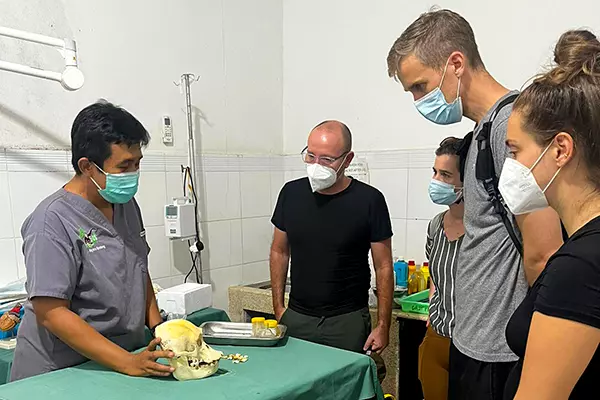
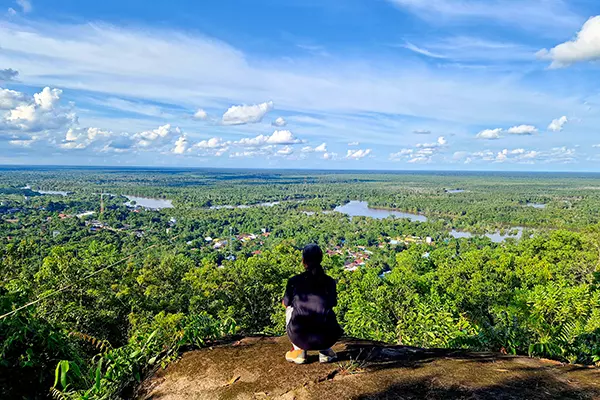
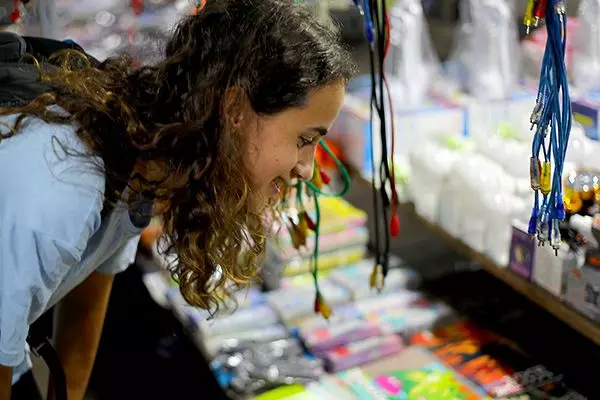
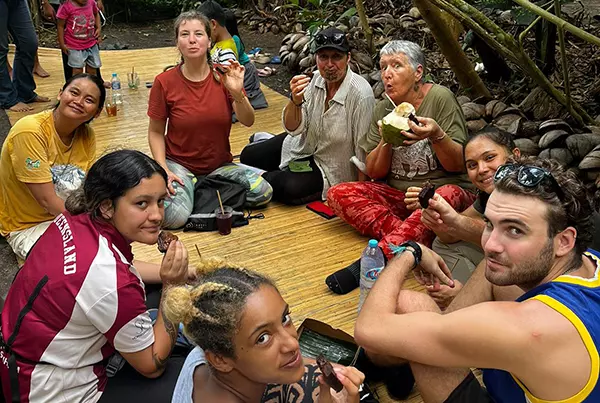
Itinerary
Below is an example of a typical two-week itinerary. Please note that some activities may be subject to change during your stay, as they are dependent on weather conditions and the requirements of the project at the time.
Durations & Prices
Accommodation
Volunteer Accommodation
You will stay in either an authentic longhouse or one of two houses situated opposite in the jungle surroundings of the sanctuary's grounds. Rooms are based on a twin-share, same-sex basis with 1 double room available for couples at request. Each room comes complete with bed linen, a fan, and mosquito nets. All rooms have their own en-suite bathrooms, complete with a western toilet, shower, sink and mirror. There is a kitchen and communal area in the longhouse, which is free for all volunteers to use, and has free Wi-Fi available, but please bear in mind that the signal can be intermittent. There is a free, regular cleaning service if you wish for your room to be cleaned and there are also laundry services available, though this come at a small fee.
Meals & Beverages
Volunteers enjoy three meals per day at the project, with all meals and drinking water included in the project fee. Your lunches and dinners will be prepared for you and will consist of typical Indonesian food, such as rice, noodles, and fried vegetables. Breakfast, however, is prepared by volunteers, but the food, such as cereal, yoghurt, bread and eggs is supplied. Vegetarians can be catered for but please let us know in advance so the appropriate food can be purchased. (If you have any severe nut allergies, please contact us prior to booking.)
Alcohol is permitted and beer can be purchased at the sanctuary but may only be consumed at the volunteer accommodation. Snacks are not currently available onsite, but they can be purchased from a small local store which is a 15 minutes walk from the accommodation.
Project Details
When Is The Best Time To Volunteer?
This project is based at a rehabilitation sanctuary, and there are orangutans here year-round, meaning there is no real preferred time to volunteer regarding the animals.
The weather is also quite constant throughout, and whilst it can rain at any time of the year due to the rainforest climate, you can expect mostly dry weather with temperatures averaging 32°C (90°F) in the daytime and 23°C (73°F) at night.
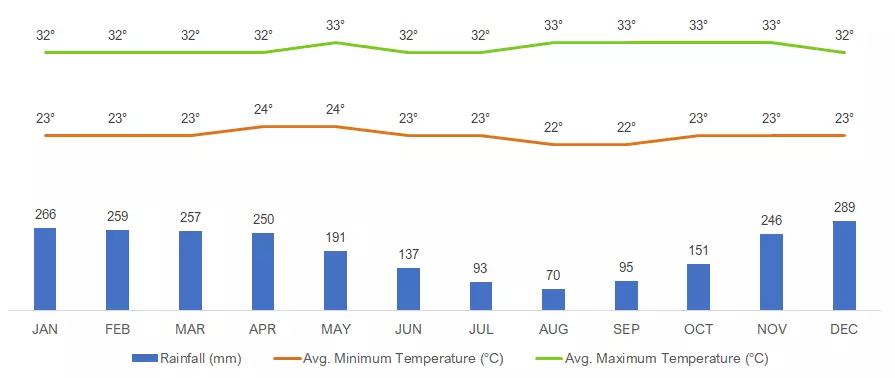
Getting There
You will need to fly into Palangkaraya Airport on your project start date, arriving between 8am-5pm, with most international flight routes going via Jakarta International Airport (Soekarno-Hatta International Airport). Upon arrival into Palangkaraya Airport, you will be met by a project representative in the arrivals hall who will then transfer you to the Nyaru Menteng Orangutan Sanctuary. This transfer takes approximately 40 minutes.
If you arrive a day early and stay in a hotel close to Palangkaraya Airport, we will be able to arrange your transfer to Nyaru Menteng from there.
Visa Requirements
To join this project, you will need a Social Visa (C6), which you must obtain prior to arrival in Indonesia. This visa permits a stay of up to 60 days and can be applied for with ‘My Visa Indonesia’. We will provide all the necessary documentation you require and the cost of this visa is approximately $250.
Please note, your passport must be valid for a minimum of 6 months from your date of entry into Indonesia.
Fitness & Skills
There is a moderate level of fitness required to take part in this project. There may be small construction tasks that will take place in humid conditions, as well as short walks which involve walking uphill. The other tasks are not too physically strenuous, but for the reasons mentioned above, we advise that you ensure you can cope with the few physically demanding tasks involved. There are no specific skill sets or experience that are required to join this project, but volunteers must always be willing to work as part of a team.
Vaccinations & Medical Requirements
To volunteer on this project, you must provide negative test results to show you do not have HIV or Hepatitis B or C prior to arrival. A chest x-ray or QuantiFERON blood test to show you do not have Tuberculosis is also required. These are ESSENTIAL, as without them, you will be unable to join the project.
Due to Covid-19, additional safety measures have also been introduced to ensure the safety of all volunteers, staff members and the orangutans. These can be viewed by clicking here and may change at any time.
No Contact Policy
We are often asked whether or not volunteers will have the chance to touch or play with the orangutans whilst on this project. Our answer to this question is, and always will be no, and this is for good reason.
Orangutans are highly susceptible to human diseases, many of which are far more dangerous to an orangutan than they are to us. Also, an environment of constant change, with new volunteers going to the project every two or four weeks and being in contact with the orangutans would be very detrimental to the orangutans' well-being. With no consistency in their lives, behavioural problems arise. They also have a tendency to begin to trust humans which is damaging should they be released back into the wild, as they will become easy targets for poachers. Finally, an orangutan is around 7 times stronger than an adult male human so a no-contact policy is just as crucial for your safety as theirs.
That is not to say that you will have no interaction with the orangutans, it simply means that you will have no direct contact with them. You will still observe them on a daily basis and see how your contribution to their husbandry and enrichment makes a real difference to the lives of these apes. For more information, please view our article on hands-on contact with orangutans.
Videos
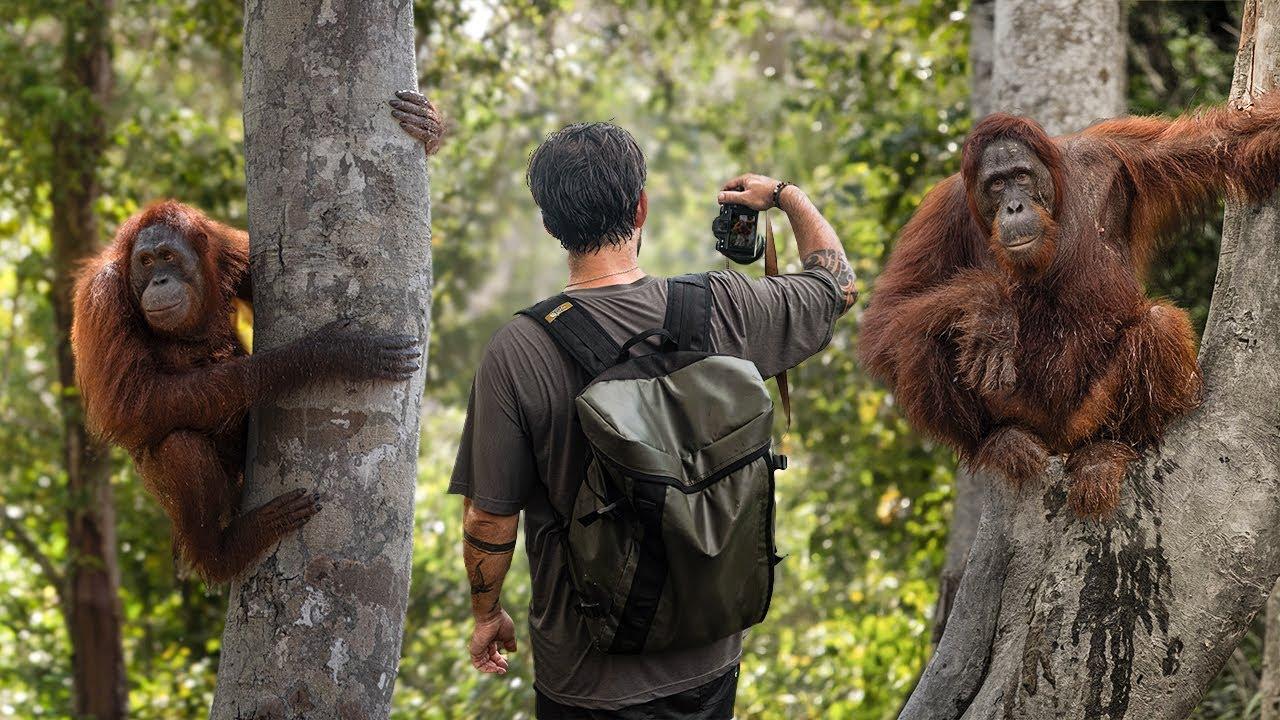
Discover the Nyaru Menteng Orangutan Sanctuary
Join us in the heart of the Bornean rainforest with the Borneo Orangutan Survival Foundation, where you can help rescue and rehabilitate orphaned and displaced orangutans, all while experiencing the breathtaking beauty of Indonesia.
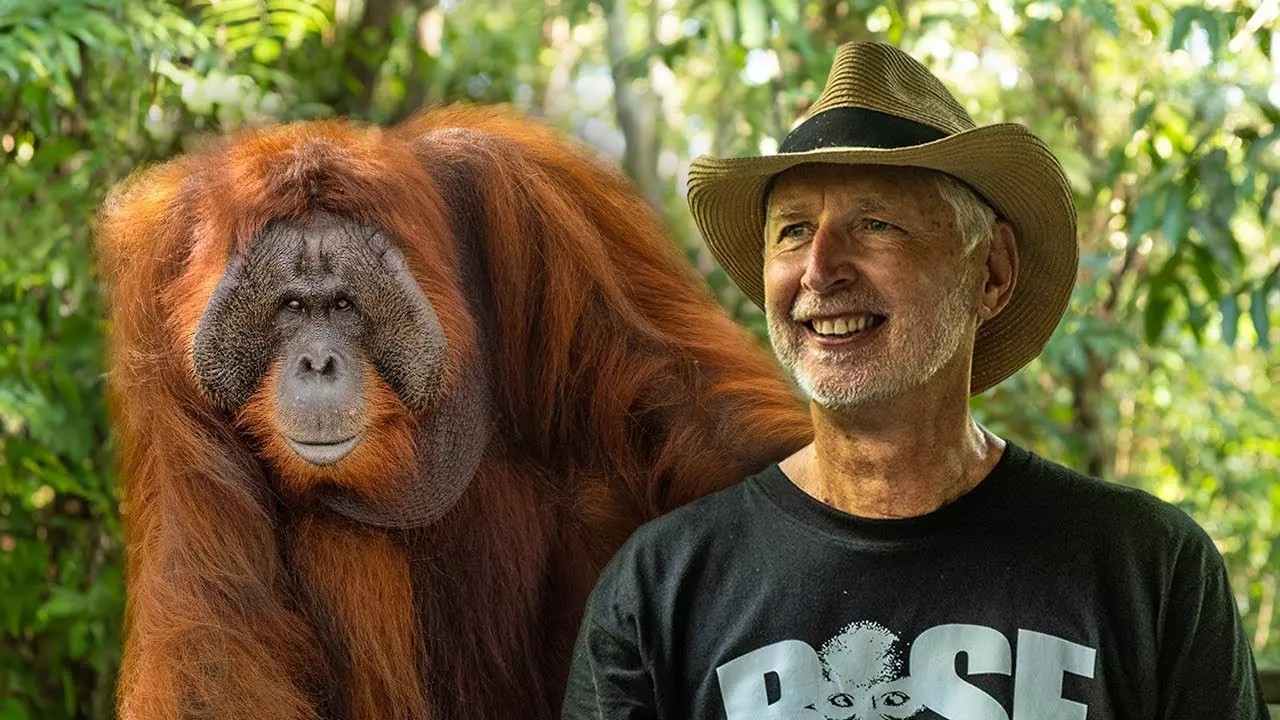
Volunteers share their experiences at Nyaru Menteng
Volunteers Rob, Ryan, Camille, and Lasse share their moments whilst taking part at Nyaru Menteng Orangutan Sanctuary.
Orangutan Rehabilitation: Preparation For Life In The Wild
Arga, a dedicated Orangutan Veterinarian from the Borneo Orangutan Survival Foundation, explains the journey of a young orangutan going through the rehabilitation process and the meticulous care required to prepare them for a life of independence.
Gallery
News & Stories

Nia Throws a Strop
UPDATE | Feb 2026
Surrogate mother Indrayana captured these wonderful photos of Nia mid-strop after nursery group playtime came to an end. Clearly, she wasn’t ready for the fun to stop!

An Update on Nia!
UPDATE | Jan 2026
Nia recently received treatment for an issue with her eye, including a corneal ulcer and tiny lice around her eyelids. Treatment is ongoing, and she is being closely monitored. Despite this, Nia remains energetic at Forest School, climbing trees, practising early nest-building, learning from her friends, and enjoying muddy puddles as she continues to develop skills for life in the wild.
ARTICLE | Dec 2025
Wondering if volunteering abroad really helps? Discover the true impact of ethical wildlife volunteering through Bumi's rehabilitation journey at Nyaru Menteng. From enrichment to pre-release preparation, see how responsible voluntourism creates real, lasting change.
Reviews
My mom and I took this trip and had the best time! Everything was so organised and well thought out. We loved every second of it. The jungle school was of course our favourite part! We loved seeing how much thought and care was put into each enrichment activity while keeping every orangutans needs, likes and dislikes in mind. Niamh and Matt - our volunteer coordinators, made the trip that much better. Their enthusiasm and passion was truely admirable and just an amazing energy to be around. Thank you guys!
This trip was hard work in places but so, so rewarding! The activities are varied, interesting and really benefit the Orangutans which you get to see on an almost daily basis after day 5 when you have your second Covid test. Really well organised from start to finish and the BOSF staff are very welcoming and friendly and everything is explained in great detail. Support from The Great Projects team before I left was superb! You will get the chance for some awesome photos too which will remind you of your great trip. I cannot recommend this trip highly enough, so if you want to do something absolutely amazing then book this volunteer holiday soon.
What's Included
- Accommodation
- Three meals per day
- Airport transfers
- River cruise
- Hilltop trek
- A visit to the night market
- Conservation donation
What's Not Included
- Flights
- Visas
- Soft and alcoholic drinks





























